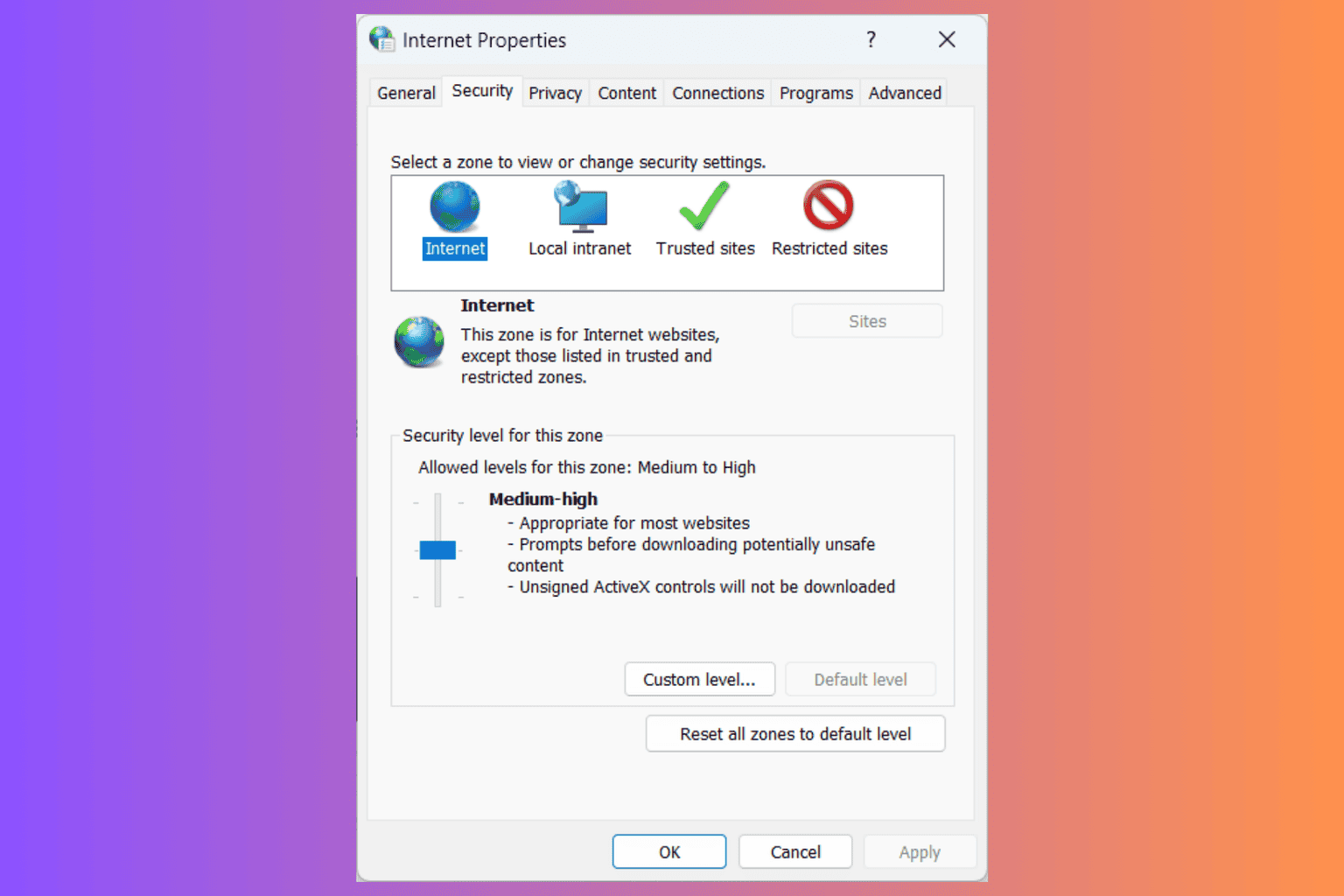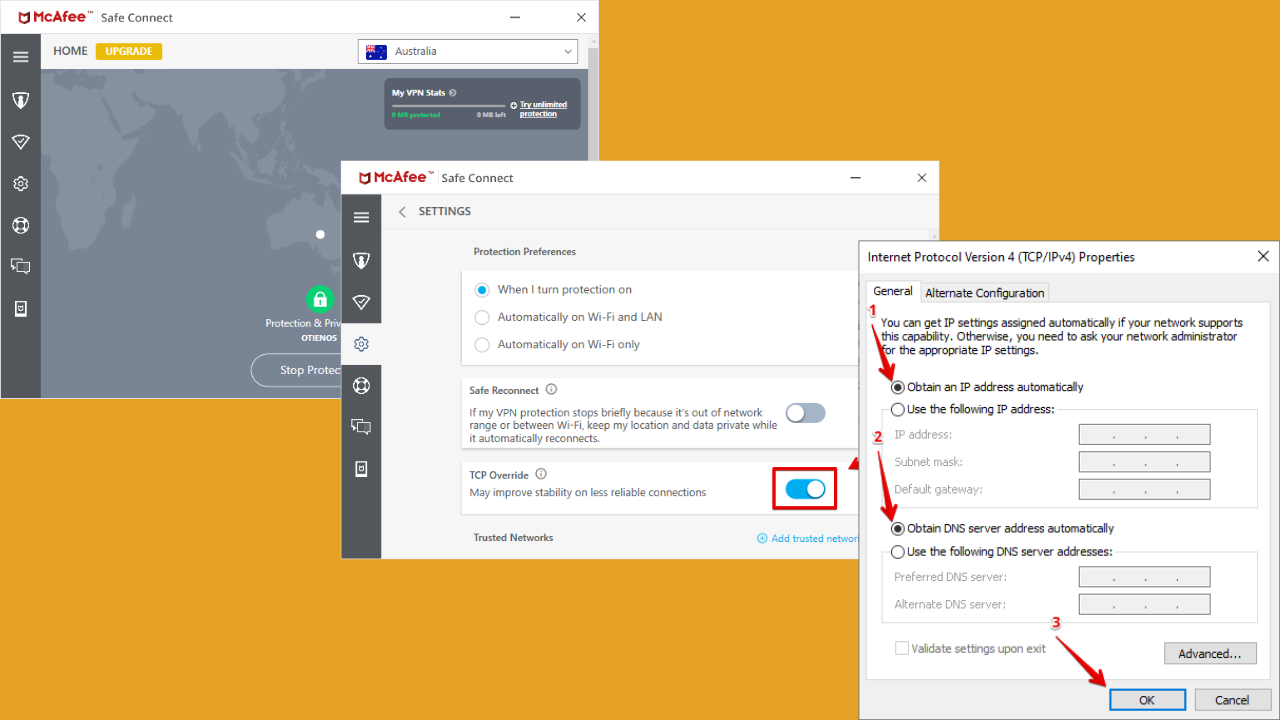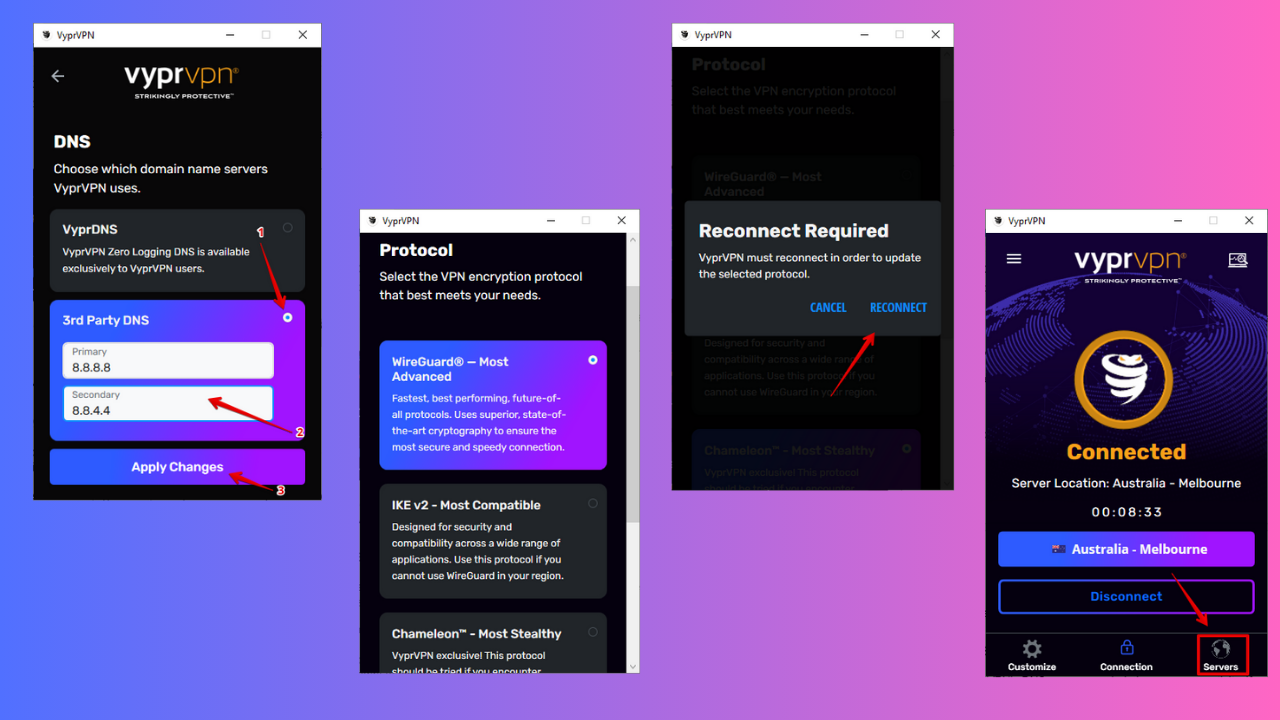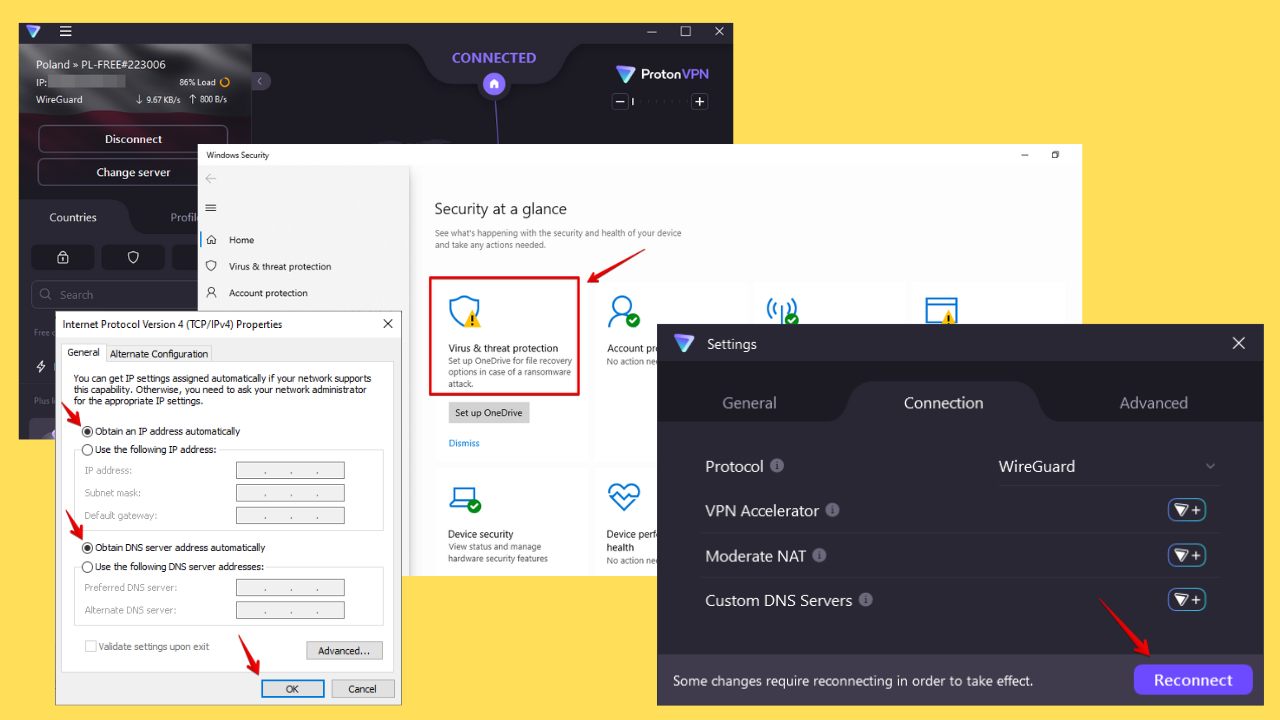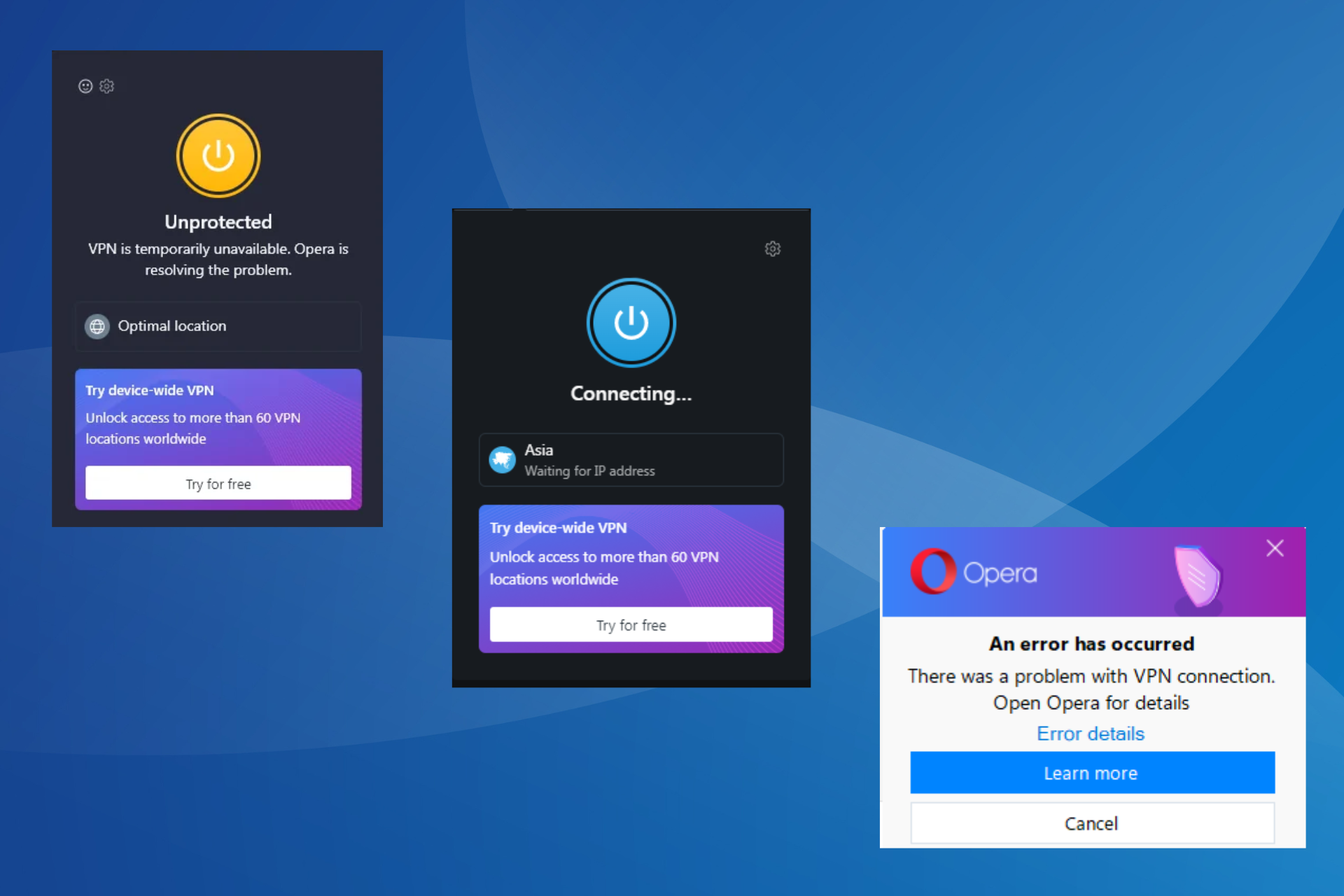How can VPN give free Internet? (4 foolproof hacks)
5 min. read
Updated on
Read our disclosure page to find out how can you help Windows Report sustain the editorial team Read more
Key notes
- VPNs are easily one of the most impressive tools when it comes to privacy protection. They can tackle a lot of privacy and connectivity issues.
- However, people started to get creative when it comes to VPN usability. Thus, one of the most popular mysteries is whether a VPN can give you free Internet or not.
- Check out our best VPNs that can protect your online privacy.
- Visit our VPN Troubleshooting Hub to find out what else you can do with a VPN.

VPNs are easily one of the most impressive tools when it comes to privacy protection. People from all around the world use it every day and successfully avoid privacy issues, but also ISP-imposed restrictions and censorship.
VPNs can pretty much handle a lot of situations, ranging from bypassing geo-restrictions to decreasing your ping and improving packet loss. So it makes perfect sense that not only privacy-concerned customers can use their services.
However, the fact that VPNs can handle so many extra tasks gave people some wild ideas.
Most of them try to flush out the negatives of using a VPN, such as:
- Can a VPN be hacked?
- Is it possible to get hacked through VPN apps?
- Can VPN be traced?
- Is it possible that a VPN can cause viruses?
And so forth, you get the point. However, there are a select few that ponder upon more creative ways to use a VPN. One of the most popular mysteries is whether a VPN can give you free Internet or not. Well, we’re about to find out.
How does VPN work?
What a VPN does is carry your Internet traffic to destination through a secure tunnel, but not before encrypting it. So it’s an encryption-routing service, right? Well, kind of.
When you install a VPN client on your PC, it should automatically intercept your machine’s entire traffic and encrypt it. Keep in mind that the VPN client does the encryption.
Your traffic then gets pushed through a secure tunnel, which your ISP can’t access. And even if it could, all it could see was encrypted data. In other words, utter gibberish.
The data gets to the VPN server, where it is swiftly decrypted, then continues its path towards the destination. Upon receiving your request, the host (destination service) generates a response and sends it back to you.
However, the path is reversed, meaning that the response gets encrypted by the VPN server, and decrypted right before you see it, thanks to your VPN client.
So what does free Internet have anything to do with any of this?
Your ISP is no longer the middle man
Well, your ISP is usually the only way you can access the Internet. You connect to its infrastructure and gain access to the world wide web. When you’re using a VPN, things change a bit.
Meaning that your ISP can no longer see your Internet traffic (since it’s encrypted). But that’s as far as this goes. The ISP is no longer the middle man, but you still need its services to connect to the Internet.
How do you figure? Well, imagine this. You get a brand new computer and manage to install a VPN client on it. The PC has no ethernet cable plugged in and you pay no Internet subscription.
Do you think this will grant you Internet access? Hint: it won’t.
ISPs still provide you with Internet access
As the subtitle generously hints at, your ISP is still the only way you could access the Internet. What a VPN does is re-route your traffic so it’s no longer visible to your ISP.
However, for that traffic to exist in the first place, you need Internet access, which your VPN can’t possibly grant you. Well, there are some ways it could do so, but they’re not exactly legal.
Can a VPN give free Internet access?
Inventive PC users have figured out some ways to turn their VPN to the dark side in order to get free Internet access. We don’t condone using your VPN as an instrument for bad, so we’re merely going to mention them.
1. Using an ICMP exploit
ICMP, also known as Internet Control Message Protocol, or even simpler, ping, can be exploited to receive free Internet access.
Basically, if a computer doesn’t have Internet access but it can ping various hosts (such as public websites), it’s a sign that ICMP can be exploited to access the Internet.
2. Using a DNS exploit
Most networks are configured to allow free passage for UDP packets assigned to port 53. Since the DNS protocol uses port 53, the firewall will assume the UDP package is a DNS request, allowing it to pass.
This works on computers that don’t have an active Internet subscription or data plan but can still resolve hostnames.
3. Changing the default ports
Some ISPs used to leave a bunch of network ports open for various reasons. Troubleshooting seems to be the most obvious reason as to why an Internet provider could do that.
Anyway, this knowledge along with a competent VPN can be exploited to receive free Internet.
4. Using a host header exploit
Some ISPs might let you view some websites for free, even if you’re not one of their customers, or if your data plan expired. All you need is a direct connection to the ISP network, either via Ethernet or WiFi.
Well, as it turns out, certain TCP VPN connections allow you to use a custom HTTP header upon connection.
Thus, a malicious party could simply use fake headers to trick their ISPs into believing they actually connect to the free website, when in fact they browse other websites.
Free Internet access with a VPN might not be legal
Although VPNs could be used to grant you free Internet access, we suggest you treat the information presented above as strictly educational and not attempt to replicate any of the scenarios.
VPN providers sanction unlawful behavior, and you might even get in trouble with the local authorities if you’re caught on the wrong side of the law.
[wl_navigator]




